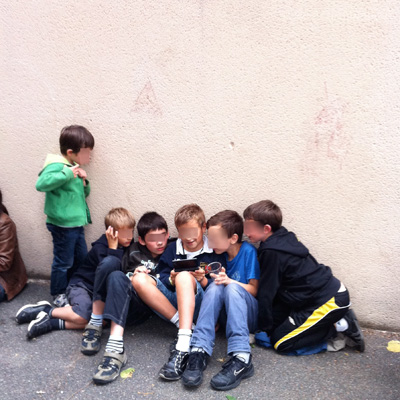Screens

Clamart, june 2011.
A large amount of critical discourses about new technologies denounces their negative impact on what is presented as our real social life. E-mails, blogs, and now Facebook or Twitter, are all evil tools that endanger our relationships. They kill our sociability and dramatically reinforce anomy. Screens have a lot to do in this process, since television was invented. Imagine: we can now stay a whole day without leaving our chair, our eyes glued to our computers screens. We even live-tweet TV programs. And once outside, in the subway, walking down the street, or — what a shame —, during a show, we cannot stop staring at our not-so-smart-phones. All alone. Such a network of screens builds a new worldwide society made of lonely, thus selfish, individuals, who watch and read stuff all day long. In this portrait, video games are the worst, of course. Think about this japanese boy who died, starving, because he couldn’t stop playing at some Multi Massive Online Role Playing Game. Or that mother who forgot to feed her child.
Yes, maybe. But this kind of assertions is problematic in numerous regards. First, it acts as if these tools were not used precisely in order to contact other people, to explore new friendships or to produce small communicative gestures that reinforce our own presence to others. Second, it is never grounded on empirical studies. So it reflects more on imagined uses than concrete ones. Think about the way you effectively use the screen of your phone, of your computer. Look at those kids in the school yard. How they are participating in a simple DS Nintendo Game. Looking at the screen together, chatting, giving their appreciation about the score or the lattest move, laughing at each other. Screens are not always stared by lonely people. Their ontology has nothing to do with the unavoidable emergence of a world made of sociopathic zombies.






